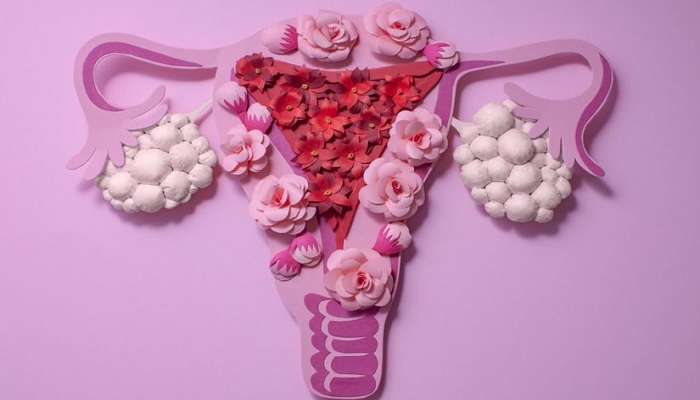How to Get Rid of PCOD Problem?
PCOD/PCOS both are similar term used for Polycystic ovarian syndrome or disease, Which affects women’s ovaries that release progesterone and estrogen hormones responsible for regulating the monthly cycle and minor hormones like inhibin and androgens. PCOD Problem is increasingly affecting women. Women with PCOD/PCOS produce more male hormones as compared to other women. It’s a relatively common condition, but the biggest concern is that the exact PCOS problem solution is not available yet. Moreover, this hormonal imbalance can cause them to miss menstrual periods, making it difficult to conceive.
Apart from Hormonal Imbalance, PCOD/PCOS can lead to:
- Infertility
- Acne
- Excessive growth of hair
- Diabetes
What Is PCOD/PCOS Problem?
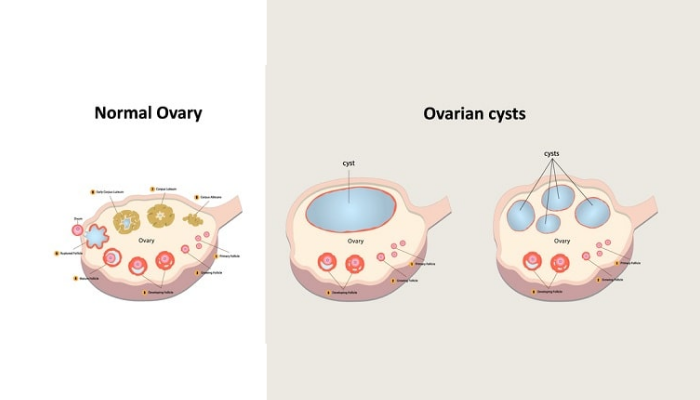
During PCOD/PCOS, the ovaries start producing massive under-developed or partly developed eggs. Moreover, these eggs develop into cysts.
As a result, the ovaries grow larger and emit more male hormones (androgens), resulting in infertility, irregular menstruation periods, hair loss, and excessive weight gain. However, one can manage PCOD/PCOS with good diet and lifestyle transformations.
The pituitary gland induces FSH and LH. (Known as follicle-stimulating hormone and luteinizing hormone, respectively.) Moreover, they are responsible for regulating the ovulation process. FSH is responsible for developing a follicle, a sac containing an egg. Furthermore, LH induces ovaries to release matured eggs.
There is no precise response to why the PCOD/PCOS problem comes. Hence, the exact PCOD problem solution is unknown.
What are the Symptoms of PCOS/PCOD?
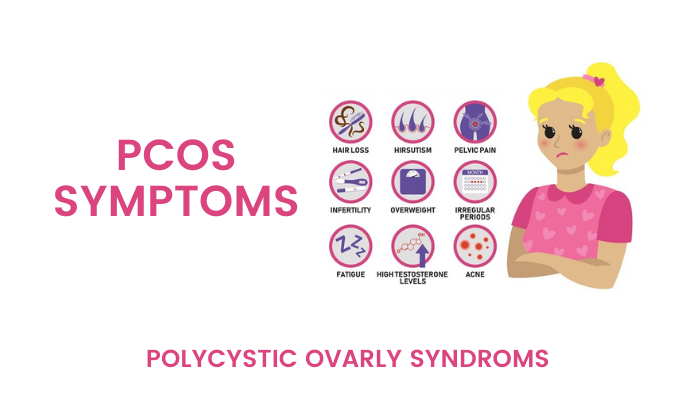
Some women notice symptoms during the time of their first menstruation, while others don’t until they’ve put on weight or are having problems while conceiving.
So, the following are the most prevalent indications and symptoms of PCOD/PCOS:
1. Irregular Menstruation: The uterine lining doesn’t shed due to the absence of ovulation. Moreover, PCOD causes some women to have fewer than eight cycles per year or nothing at all.
2. Excessive hair growth: Women with PCOD problems grow hair throughout their bodies. This includes the face, belly, back, etc. Doctors refer to it as Hirsutism.
3. Acne: Due to excessive male hormones, it can result in acne as it makes the skin oilier than regular.
4. Heavy Weight Gain: Women who suffer from PCOD put on weight or are overweight.
5. Excess Bleeding: Your menstruation may be heavier than usual as the uterine lining builds over a prolonged time.
6. Baldness: The hair on your scalp thins and may fall off.
7. Skin Discoloration: Dark patches can form in body folds, including the neck, groin, and beneath the breast.
8. Headache: Hormonal fluctuations might lead to headaches in particular females.
So, these signs and symptoms can be stressful and irritating. However, you can’t treat these conditions due to the absence of an accurate PCOD problem solution.
PCOD/PCOS Causes
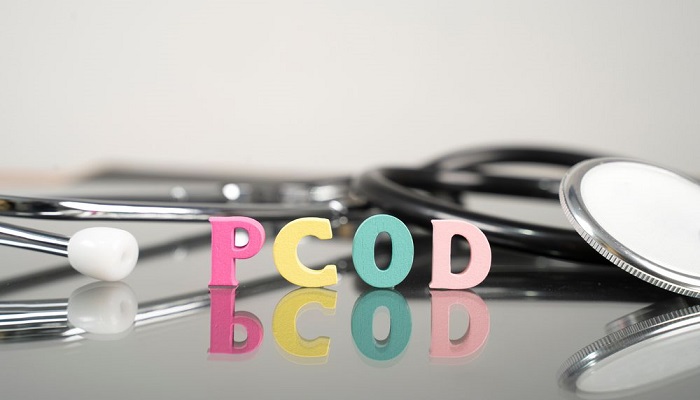
Although the actual cause of PCOD/PCOS is obscure, there are a few significant aspects to consider:
- Increased insulin production: high insulin levels in the body can increase androgen levels, making ovulation problematic.
- Excessive androgen level: The ovaries release unusually high androgen hormones, which can cause acne and Hirsutism.
- Low-grade inflammation: According to a new study, women with PCOD have low-grade inflammation, which leads to increased androgen levels, which might cause cardiac problems.
- Heredity: Women with PCOD have a genetic link.
So, to control PCOD/PCOS, you may need to address the main reason behind your PCOS. Following that, your doctor can devise a strategy for the PCOD/PCOS problem solution.
PCOD/PCOS Problem Diagnosis
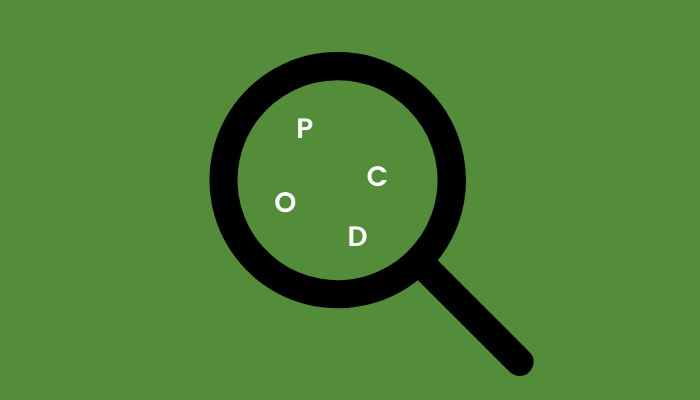
PCOD/PCOS is a condition that affects the body’s processes, and the diagnosis is possible through blood tests and ultrasound. Also, the gynecologist will inquire about medical records, drinking and eating routines, and your current and past medications, including nutritional supplements.
This depends on the symptoms such as:
- Irregular menstrual cycles
- Baldness
- Unwanted hair growth on the face, back, chest
- Acne
- Thinning of hair
Moreover, the gynecologist may recommend some tests that can help diagnose PCOD. Some of the tests include:
- Blood Tests: Blood tests can assist in understanding the hormone levels in your body. The blood tests can include glucose tolerance tests, HDL, LDL, and other tests that will lead to the correct PCOD problem solution.
- Pelvic Examination: Physically inspect the reproductive organs for lumps, anomalies, or growth.
- Imaging: Ultrasound imaging exam to assess the ovary’s size, uterine lining, and cysts in the ovaries.
However, the gynecologist may suggest other examinations to rule out complications apart from these tests. These might include the following:
- Periodically monitoring glucose tolerance levels, cholesterol, and blood pressure.
- Anxiety and depression screening
- Obstructive sleep apnea (OSA) testing (OSA)
The Effect Of PCOD/PCOS On Your Body
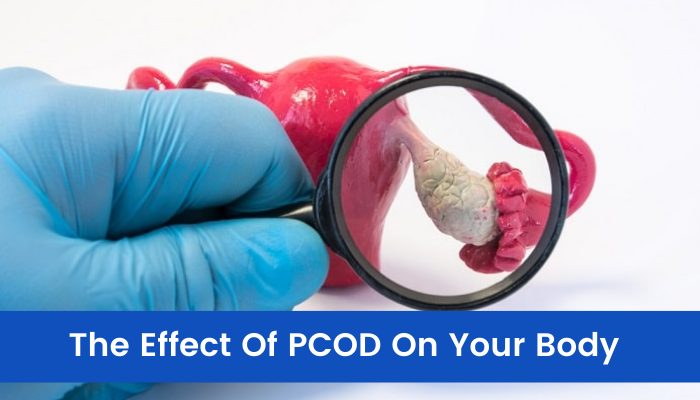
Androgen levels higher than normal can affect your reproduction and other aspects of your health.
- Infertility
You must ovulate to become pregnant. Women not getting ovulation regularly produce fewer eggs for fertilization.
- Weight Gain
PCOD/PCOS women are overweight or obese. Moreover, weight gain can lead to:
- Elevated blood sugar levels
- Blood pressure that is too high
- Lower “good” HDL cholesterol
- LDL “bad” cholesterol levels remain elevated.
Metabolic syndrome is the combined effect of these factors, and it increases the risk of.
- A heart attack
- Diabetes
- Stroke
Endometrial cancer
The uterine lining breaks during ovulation. Moreover, a lack of ovulation every month can thicken this lining.
If the uterine lining grows, you’re more likely to get endometrial cancer.
Depression
Hormonal changes and symptoms such as undesired hair growth can negatively impact your mood. Anxiety and depression are common side effects of PCOS.
PCOD/PCOS and pregnancy
PCOD/PCOS disturbs the standard monthly cycle, making it harder to get pregnant. Additionally, this issue can raise the possibility of challenges during pregnancy. Ladies with PCOD/PCOS will probably conceive and deliver the offspring preterm, and they’re likewise bound to have unsuccessful labor, have hypertension, or foster gestational diabetes.
In addition, ladies with PCOD/PCOS, again, can conceive with IVF medications that improve ovulation. Also, getting more fit and controlling sugar levels can assist you with having a better pregnancy.
What is The Solution of PCOS/PCOD?

Pcod/Pcos problem can be treated with medicine such as Metformin, birth control medication and other drugs can help cure PCOD/PCOS symptoms. This includes unwanted hair growth and acne by regulating the menstrual period and the monthly flow. To get the proper treatment, you can visit us at the Mishka IVF center in Jaipur.
Birth Control Pills
The benefits of taking birth control pill include:
- Re-establish a healthy hormonal balance
- Ease symptoms such as excessive hair growth by regulating ovulation.
- Endometrial cancer prevention
Metformin
Metformin refers to type 2 diabetes medication, and it also helps in the treatment of PCOD/PCOS by lowering insulin levels.
Medications for hair removal
A few medications can aid in the removal of unwanted hair or the prevention of its growth.
Surgery
If different treatments aren’t fruitful, IVF procedure might be a possibility for further developing fertility.
Lifestyle Modification

Keeping a healthy weight
A BMI of 18.5 to 24.9 is considered optimum and appropriate for women. However, a BMI of more than 30 is deemed obese and unhealthy. Keeping a normal body weight or losing weight aids in decreasing average cholesterol levels.
Additionally, it lowers the risk of hypertension, cardiovascular disease, and diabetes. Moreover, it will restore the ovulation process in the menstrual by maintaining optimum insulin and androgen levels. To achieve a healthy BMI, visit a dietician for a weight-loss program.
Physical Activity
Regular physical activity and becoming energetic will help maintain your body weight. Additionally, it will regulate your blood sugar levels.
Limiting Carbs
If you are experiencing PCOD/PCOS, it is wise to stick to a low-carb diet. So, this can help in maintaining the insulin level. Include green leafy vegetables, good fat, and healthy food in your diet. Refrain yourself from sugar and processed food.
Conclusion
PCOD/PCOS can make a lady’s monthly cycles disturbed, making it hard to conceive. High measures of male chemicals additionally cause unwanted signs like hair development. For the most part, specialists suggest a way of life changes as the principal PCOD problem solution. Besides, this can work.
Additionally, weight reduction can assist with PCOD/PCOS indications and increment your pregnancy possibilities. Weight reduction can be accomplished through a blend of diet and exercise.
FAQs
Q 1. How can I solve the PCOD/PCOS problem at home?
PCOS/PCOD problem solution is tailored to your specific needs, like infertility, Hirsutism, breakouts, or being overweight. Way of life adjustments or medications could be a part of a particular treatment plan. Your physician may also recommend a low-calorie diet along with the activity.
Even a slight weight loss could help your health and be an effective PCOD/PCOS problem solution. Insulin levels may rise by low-fat, high-carbohydrate foods.
Q 2. What should not eat in PCOD/PCOS?
The moment your doctor diagnoses your condition, you must avoid certain foods. This includes sugary drinks, highly processed and fried foods, refined carbs such as bread, ice cream, and other food items.
Q 3. What is the solution for PCOD/PCOS?
There is no precise cure for PCOS/PCOD at this time. As a result, you must keep a healthy lifestyle.
So, you need to maintain a healthy lifestyle, a good diet including leafy vegetables, whole seeds, healthy fats, lentils, pulses, etc. Prepare your meals, be active, focus on losing weight, and don’t lose hope.
The situation will get under control if you follow these tips regularly. As a result, you might think of this as a PCOD problem solution to help you feel better.
Q 4. Is pregnancy possible in PCOS/PCOD?
Usually, there might be complications for women trying to conceive or develop complications during pregnancy. However, with proper care, attention, and infertility treatments, you can have a healthy pregnancy.

